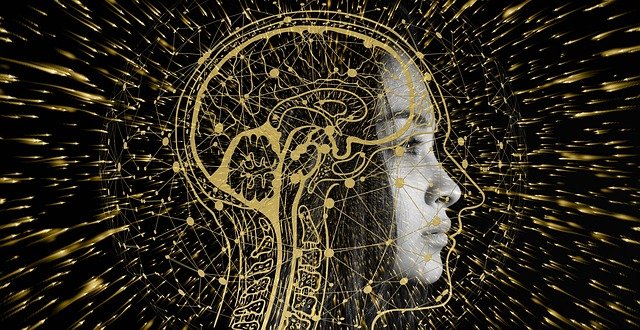AI and cybersecurity have become an essential part of human existence. It’s pretty evident in virtual assistants like Alexa and Siri and self-driving cars, just to mention a few. Artificial Intelligence (AI) has become a game-changer in many industries, including medical, technology, and manufacturing.
Unfortunately, with these advancements, cyber-attacks continue to be a threat to most organizations. So, what’s in for AI and cybersecurity in the future? Stick around to find out more.
How Do AI and Cybersecurity Work Together?
Cybercrime cases continue increasing each day. Most organizations haven’t fully developed mechanisms that make them immune to these attacks. By incorporating AI into security systems, cyber security companies and organizations can fight cybercriminals better.
AI can efficiently complete tasks through a machine learning process. It first recognizes a threat and categorizes it before taking defensive action.
AI complements the tasks of cybersecurity experts and reduces the tasks allocated to them. Machines are excellent in processing any information in a short period. They can easily pick out suspicious information and leave it for cyber experts to examine. Thus, it’s a great tool in discovering cyber threats as it comes up with solutions quickly.
Human error contributes to data breaches. Fortunately, AI can easily avoid these errors. One great thing about artificial intelligence technology is its precision when performing repetitive tasks.
AI Will Be A Significant Part of Data Protection for Most Companies
Several organizations continue falling victim to cyber-attacks and threats. Most are continuously working to stop these attacks, but attackers devise new ways to deal with these fights. Cybercriminals conduct multi-dimensional attacks that disrupt the security of these organizations.
Both small and large organizations are going to use artificial intelligence technology to improve their data protection. AI will assist them in protecting data online from malicious people like hackers, identity thieves, and scammers.
Nonetheless, organizations need to comply with NIS directives to manage the risks of cybersecurity breaches. These directives have specific requirements around incident responses. They encourage the implementation of technical security measures based on the risks.
The directives are divided into three major parts which are:
- National capabilities
- Cross-border collaboration
- National supervision of critical sectors
Incorporating artificial intelligence into organizations’ systems is a fantastic way to fight with something more than commercial security systems.
AI and Cybersecurity Relationship Will Continue Flourishing
AI models can easily detect potential security threats, malicious activities, and vulnerabilities in a system before stopping them before they cause any harm.
AI and cybersecurity relationships will continue to grow. AI uses learning machines to study patterns of an attack, making it an excellent cyber defendant.
Organizations will create a cybersecurity framework that follows various AI concepts. An example is the California-based Avata intelligence, which uses security and machine learning to predict future terrorist threats.
Another example is Deep instinct, a global security cybersecurity platform that uses predictive analysis to detect variations in known malware code.
AI Will Replace the Need of Human Beings
According to research conducted by Trend Micro, AI will substitute the need for human labor by the end of 2030. There is a belief that most cybersecurity roles will entirely be automated. There will be little to no human intervention.
According to the research, 41% of the interviewees believed AI would replace their roles in 2030. Only 9% of the respondents were confident AI isn’t going to replace their roles anytime soon.
Prediction aside, one thing that’s a guarantee is that AI and human beings will collaborate and complete any assigned tasks. Working together will be an excellent step to create better working security tools.
It’s going to play a massive role in reducing cybersecurity skills that currently exist in the market.
Countries Are Going to Invest Heavily on AI to Improve Cybersecurity
The role of AI in improving cybersecurity is increasing almost daily. Countries like the US, Canada, UK, Australia, and many more countries will invest in fighting the different cybercrimes. Examples of such crimes are data theft, phishing, and ransomware.
Australia is one of the leading countries that is improving its cybersecurity through AI. It’s already allocated funds to enhance its efforts in AI and machine learning in that country.
AI Will Improve the Online Privacy of Remote Workers

Remote working has become a part of us, and most organizations are shifting to it. Just like AI, it’s going to reshape the future of cybersecurity. Remote workers, unfortunately, continue being easy targets for cybercriminals.
Thus, organizations will have to add AI concepts to their cybersecurity policies to help them protect their remote workforce.
AI Will Improve the Performance of IT and Security Departments
AI is a gamechanger of cybersecurity, and its opportunities are endless. Both small and large organizations can integrate AI into their IT and security operations. The integration helps them safeguard important information including official documents, apps, and devices.
AI Will Assist Deal with Cloud Security Challenges
Cloud adoption is a growing concept. It became more rapid with the onset of the Covid 19 pandemic, and it’s here to stay. With the application of AI in cloud services, organizations can use AI tools to integrate their businesses. Also, they can manage their data on different cloud services with ease.
Password Protection and Authentication
Hackers can get into systems with weak passwords. They can easily access essential details of different accounts. Hence it’s necessary to have a strong password that’s difficult to crack through. For extra security, adding AI cybersecurity with biometric verification will be necessary.
AI concepts can also enhance multi-factor authentication and reduce risks associated with it.
AI will help companies improve their current authentication. With the AI concepts and improved biometric mechanisms, companies can remove the need for passwords and security completely from their systems.
It will also reduce the number of unauthorized log-ins giving more security to one’s accounts and files.
Wrapping Up
Artificial intelligence in cybersecurity is one of the best things brought about by technology. The integration promises a better protection system. It is the reason why most organizations and countries continue to invest heavily in AI technology to fight cybercrimes.
It promises a better, safer, and brighter future in the technology world.









